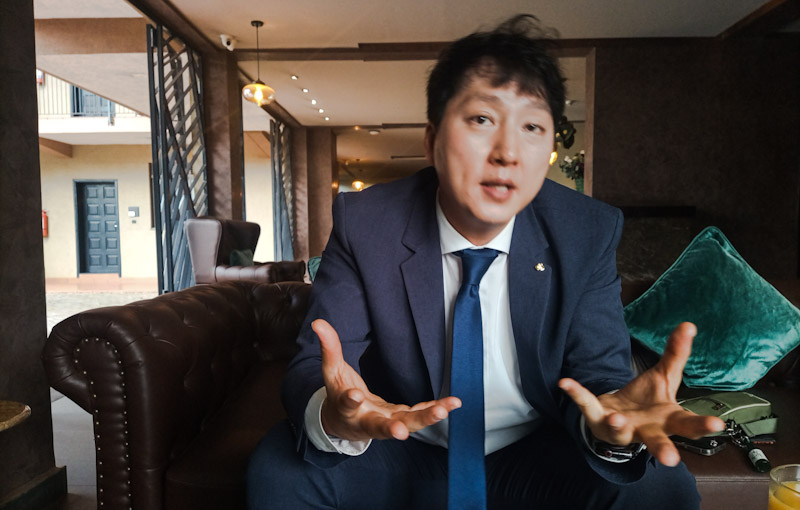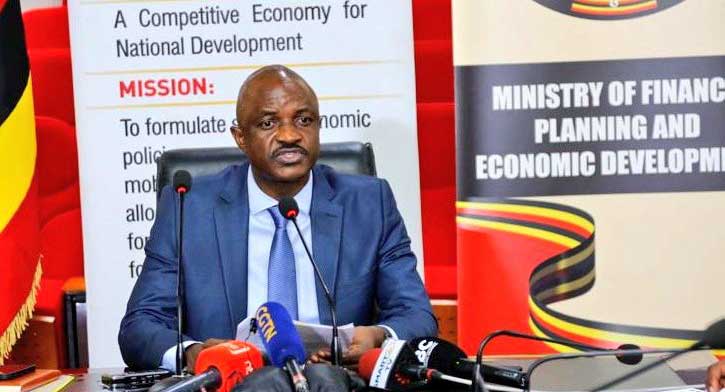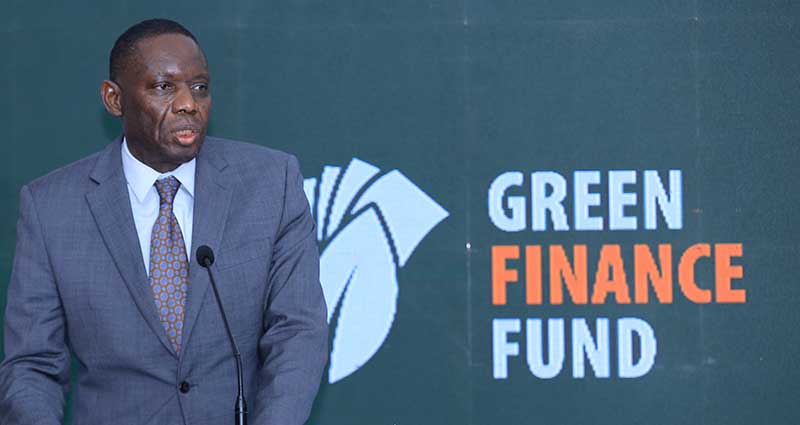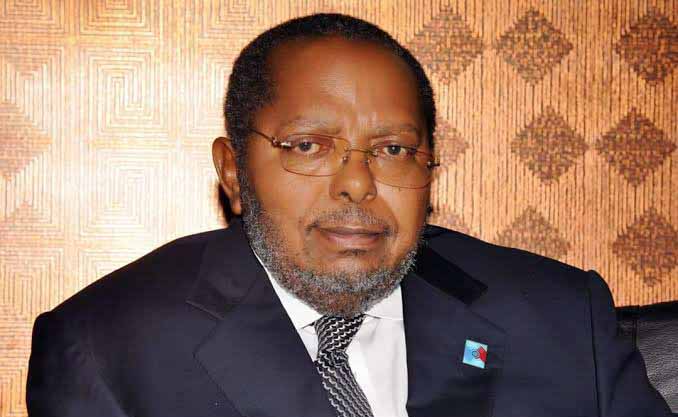Acemoglu is a Turkish-born professor of economics at Massachusetts Institute of Technology (MIT) in the United States while Robinson is a professor of political science at Harvard University. Both are celebrated researchers in the area of governance.
Their book is based on the theory that political institutions determine economic institutions which in turn determine economic prosperity. Their argument is that inclusive economic institutions can only survive in the long run if they are supported by inclusive political institutions.
We usually wonder; what makes countries end up in persistent and permanent poverty? How is it possible that an average American is 60 times richer than an average Ugandan? Is it climate geography or could it be the ignorance of domestic leaders? In their book, the real reason behind the poverty trap, in which countries like ours find themselves in, lies in the role of political and economic institutions.
Their view is that only inclusive political system makes a country possible to achieve prosperity. The opposite scenario will occur under extractive political institutions where wealth will be accumulated within a narrow ruling elite which will aim to preserve its power thus sentencing a nation to persistent poverty.
Uganda is laboratory to test why nations fail!
It does not require one to be a genius to tell that basing on the aforementioned thesis of Acemoglu and Robinson, Uganda is a perfect laboratory to test this. However, the authors choose not to use this ideal laboratory and its set specimen and instead engage the examples of the Soviet Union and the Caribbean plantation economies, to show how extractive political and economic institutions reallocated resources in a way that brought economic growth typically only when the elite expected to be the main beneficiary from such growth.
They also cite China as one of several examples of extractive growth and argue that although China is being touted as a development miracle and success story, the country will only sustain this growth if it manages to undergo a political reform that will introduce inclusive institutions. “Until then, they are destined to repeat the Soviet scenario,” they predict.
Very importantly, Acemoglu and Robinson reveal that even these Chinese growth miracles did not have their origins in some clever planning by Chinese leaders but in political struggles within the Politburo pitting Deng Xiaoping against the Gang of Four. It was once again politics — not clever planning, design or economic advice — driving economics.
“Why Nations Fail” is line with a recent thought-provoking book by Victor Nee and Sonja Opper, entitled “Capitalism from Below,” which convincingly argues that early reforms in China were neither instituted by the party nor were they outcomes of experimentation, but resulted from the party catching up with what had been going-on on the ground given the political vacuum and crisis wrought by the Cultural Revolution.
Mr President, in modern development economics we stress three main approaches that attempt to explain differences among countries: (1) the geographical position of the country, which blames exposure to rough climate, barren land and tropical diseases; (2) the cultural attribute, where the population is to be blamed for not being hard-working (less productive) due to their ethical, religious or cultural boundaries (a famous example here is Max Weber’s Protestant ethic argument); and (3) the ignorance of the country’s ruling elites, implying that if they had better economic advice, they would be able to emerge from poverty.
There is also the dual economy paradigm that blamed African underdevelopment on the co-existence of two sectors within an economy between which social mobility was almost impossible. However, Acemoglu and Robnison believe that each of these arguments is faulty.
This where a debate ensued among the heavyweights in the mainstream economics, names such as Jeffrey Sachs (a man who emphasises the impact of climate and geography on development), Jared Diamond (who on top of institutions, emphases the availability of natural resources as source of comparative advantage), Ian Morris, Niall Ferguson, Charles M Mann, Arvind Subramanian, and many more heavyweights.
Oil debate or dictation?
Another big debate amidst us centres on the management of oil and gas resources recently discovered in Uganda. Three Bills, the Petroleum (exploration, development and production) Bill 2012; the Petroleum (refining, gas processing and conversion, transportation and storage) Bill 2012; and the Petroleum revenue management Bill have all been tabled before Parliament.
The three bills are critical because at the end of the day they are supposed to provide a legal and regulatory framework to handle the development, production and utilisation of the oil and gas resources to spearhead Uganda’s vision of becoming a middle income country in near future.
The legislation of the three Bills has caused a lot of excitement and debate. Parliament has nearly turned into a market or some sort of town hall rally. Some ugly scenes have been captured where honourable members of Parliament were seen behaving in a manner not commensurate to their titles.
Mr President, I find these two debates — the “Why Nations Fail” debate, and Oil debate — highly related. My view is that the oil debate in Uganda would easily provide a good reference point for the authors of “Why Nations Fail” had they waited for a few months before taking their book to the press.
The manner in which we are handling matters of public interest in this country fits quite perfectly in Acemoglu and Robinson’s thesis. Our main impediment to prosperity is no longer a matter of geography, culture or ignorance. It is increasingly becoming clear that our main growth retarding factor is the apparent lack of political institutions and our willingness and commitment to nurture them.
Although the debate on oil is in advanced stages, many stakeholders of Uganda — the people of Uganda — rightly feel they have been left out in this crucial process. The fear among majority of Ugandans right now stems from the level of secrecy with which government has handled, and continue to handle, the oil development process at all levels.
Overall, there is lack of effective public participation in the process, inadequate transparency and disclosure of information, insufficient human rights and environmental safeguards, and a lack of community consultation, and now the excessive ministerial powers and inadequate parliamentary oversight, factors widely cited as the main precursor for conflict in countries where the natural resources have turned into a curse.
Criminal government
Mr President, for years I have been telling you that your continued stay in power, and maneuvers to surround yourself with relatives and friends, was bound to turn you into a patrimonial leader, quite far-off the democratic credentials you always want to espouse. I always hear you emphasising the importance of elections in determining whether a nation has democracy or not.
Authors of “Why Nations Fail” argue that electoral democracy is not the same as inclusive political institutions. Like India, a country that has been democratic since its independence, but whose Congress-dominated democratic politics doesn’t make the country inclusive, Uganda under your leadership is increasingly becoming a patrimonial state.
To make matters worse, a quarter of the members of the top NRM government, have faced criminal charges, while another quarter are clear candidates of criminal charges, but alarmingly, such politicians are more likely to be re-elected than those without criminal charges.
This is the government that is asking Parliament to risk and concentrate excessive discretionary powers in its hands. All probabilities show that should Parliament make this mistake and vote that the powers to issue and revoke oil licenses be vested in the Minister of Finance, chances are that this coveted task might fall in the hands of one of the “criminals”. We are talking about guys who in the last two decades have behaved as if on mission to steal the last shilling from the national treasury.
Mr. President, we have poured oceans of ink and talked our voices hoarse about your thieves, but you have ignored our concerns. Finally the results are out. The people of Uganda no longer trust you and your government. The message is clear; I am just a messenger. We cannot entrust our oil with a criminal government
Should we entrust our oil with a ‘criminal’ gov’t?
06 December 2012 14:12
A quarter of the members of the top NRM government, have faced criminal charges, while another quarter are clear candidates, but alarmingly, such politicians are more likely to be re-elected than those without criminal charges!
It cannot be a coincidence that two Big Debates are going on at this particular point in time. There must be a reason. The first big debate currently raging is among the top most economists to have walked this planet. The debate was ignited by a Big Book, “Why Nations Fail,” authored in March this year by two of the most respected economists today, Daron Acemoglu and James Robinson.
Acemoglu is a Turkish-born professor of economics at Massachusetts Institute of Technology (MIT) in the United States, while Robinson is a professor of political science at Harvard University. Both are celebrated researchers in the area of governance.
Their book is based on the theory that political institutions determine economic institutions which in turn determine economic prosperity. Their argument is that inclusive economic institutions can only survive in the long run if they are supported by inclusive political institutions.
We usually wonder; what makes countries end up in persistent and permanent poverty? How is it possible that an average American is 60 times richer than an average Ugandan? Is it climate, geography, or could it be the ignorance of domestic leaders? In their book, Acemoglu and Robinson suggest it’s none of these — rather, the real reason behind the poverty trap, in which countries like ours find themselves in, lies in the role of political and economic institutions.
Their view is that only inclusive political system makes a country possible to achieve prosperity. The opposite scenario will occur under extractive political institutions where wealth will be accumulated within a narrow ruling elite which will aim to preserve its power thus sentencing a nation to persistent poverty.
Uganda is laboratory to test why nations fail!
It does not require one to be a genius to tell that basing on the aforementioned thesis of Acemoglu and Robinson, Uganda is a perfect laboratory to test this. However, the authors choose not to use this ideal laboratory and its set specimen and instead engage the examples of the Soviet Union and the Caribbean plantation economies, to show how extractive political and economic institutions reallocated resources in a way that brought economic growth typically only when the elite expected to be the main beneficiary from such growth.
They also cite China as one of several examples of extractive growth and argue that although China is being touted as a development miracle and success story, the country will only sustain this growth if it manages to undergo a political reform that will introduce inclusive institutions. “Until then, they are destined to repeat the Soviet scenario,” they predict.
Very importantly, Acemoglu and Robinson reveal that even these Chinese growth miracles did not have their origins in some clever planning by Chinese leaders but in political struggles within the Politburo pitting Deng Xiaoping against the Gang of Four. It was once again politics — not clever planning, design or economic advice — driving economics.
“Why Nations Fail” is line with a recent thought-provoking book by Victor Nee and Sonja Opper, entitled “Capitalism from Below,” which convincingly argues that early reforms in China were neither instituted by the party nor were they outcomes of experimentation, but resulted from the party catching up with what had been going-on on the ground given the political vacuum and crisis wrought by the Cultural Revolution.
Mr President, in modern development economics we stress three main approaches that attempt to explain differences among countries: (1) the geographical position of the country, which blames exposure to rough climate, barren land and tropical diseases; (2) the cultural attribute, where the population is to be blamed for not being hard-working (less productive) due to their ethical, religious or cultural boundaries (a famous example here is Max Weber’s Protestant ethic argument); and (3) the ignorance of the country’s ruling elites, implying that if they had better economic advice, they would be able to emerge from poverty.
There is also the dual economy paradigm that blamed African underdevelopment on the co-existence of two sectors within an economy between which social mobility was almost impossible. However, Acemoglu and Robnison believe that each of these arguments is faulty.
This where a debate ensued among the heavyweights in the mainstream economics, names such as Jeffrey Sachs (a man who emphasises the impact of climate and geography on development), Jared Diamond (who on top of institutions, emphases the availability of natural resources as source of comparative advantage), Ian Morris, Niall Ferguson, Charles M Mann, Arvind Subramanian, and many more heavyweights.
Oil debate or dictation?
Another big debate amidst us centres on the management of oil and gas resources recently discovered in Uganda. Three Bills, the Petroleum (exploration, development and production) Bill 2012; the Petroleum (refining, gas processing and conversion, transportation and storage) Bill 2012; and the Petroleum revenue management Bill have all been tabled before Parliament.
The three bills are critical because at the end of the day they are supposed to provide a legal and regulatory framework to handle the development, production and utilisation of the oil and gas resources to spearhead Uganda’s vision of becoming a middle income country in near future.
The legislation of the three Bills has caused a lot of excitement and debate. Parliament has nearly turned into a market or some sort of town hall rally. Some ugly scenes have been captured where honourable members of Parliament were seen behaving in a manner not commensurate to their titles.
Mr President, I find these two debates — the “Why Nations Fail” debate, and Oil debate — highly related. My view is that the oil debate in Uganda would easily provide a good reference point for the authors of “Why Nations Fail” had they waited for a few months before taking their book to the press.
The manner in which we are handling matters of public interest in this country fits quite perfectly in Acemoglu and Robinson’s thesis. Our main impediment to prosperity is no longer a matter of geography, culture or ignorance. It is increasingly becoming clear that our main growth retarding factor is the apparent lack of political institutions and our willingness and commitment to nurture them.
Although the debate on oil is in advanced stages, many stakeholders of Uganda — the people of Uganda — rightly feel they have been left out in this crucial process. The fear among majority of Ugandans right now stems from the level of secrecy with which government has handled, and continue to handle, the oil development process at all levels.
Overall, there is lack of effective public participation in the process, inadequate transparency and disclosure of information, insufficient human rights and environmental safeguards, and a lack of community consultation, and now the excessive ministerial powers and inadequate parliamentary oversight, factors widely cited as the main precursor for conflict in countries where the natural resources have turned into a curse.
Criminal government
Mr President, for years I have been telling you that your continued stay in power, and maneuvers to surround yourself with relatives and friends, was bound to turn you into a patrimonial leader, quite far-off the democratic credentials you always want to espouse. I always hear you emphasising the importance of elections in determining whether a nation has democracy or not.
Authors of “Why Nations Fail” argue that electoral democracy is not the same as inclusive political institutions. Like India, a country that has been democratic since its independence, but whose Congress-dominated democratic politics doesn’t make the country inclusive, Uganda under your leadership is increasingly becoming a patrimonial state.
To make matters worse, a quarter of the members of the top NRM government, have faced criminal charges, while another quarter are clear candidates of criminal charges, but alarmingly, such politicians are more likely to be re-elected than those without criminal charges.
This is the government that is asking Parliament to risk and concentrate excessive discretionary powers in its hands. All probabilities show that should Parliament make this mistake and vote that the powers to issue and revoke oil licenses be vested in the Minister of Finance, chances are that this coveted task might fall in the hands of one of the “criminals”. We are talking about guys who in the last two decades have behaved as if on mission to steal the last shilling from the national treasury.
Mr. President, we have poured oceans of ink and talked our voices hoarse about your thieves, but you have ignored our concerns. Finally the results are out. The people of Uganda no longer trust you and your government. The message is clear; I am just a messenger. We cannot entrust our oil with a criminal government








